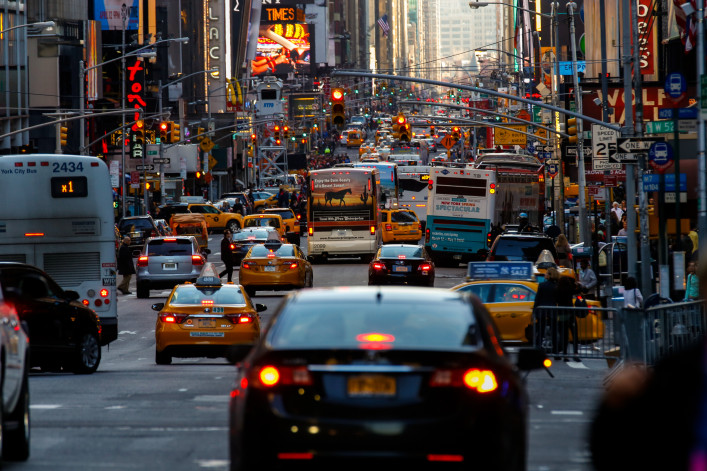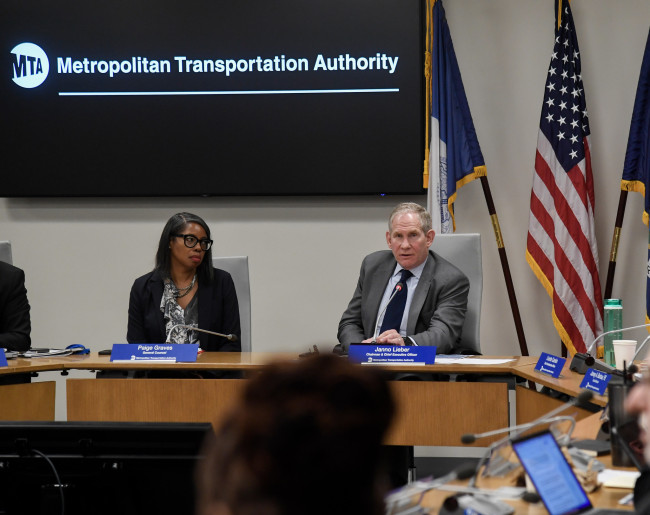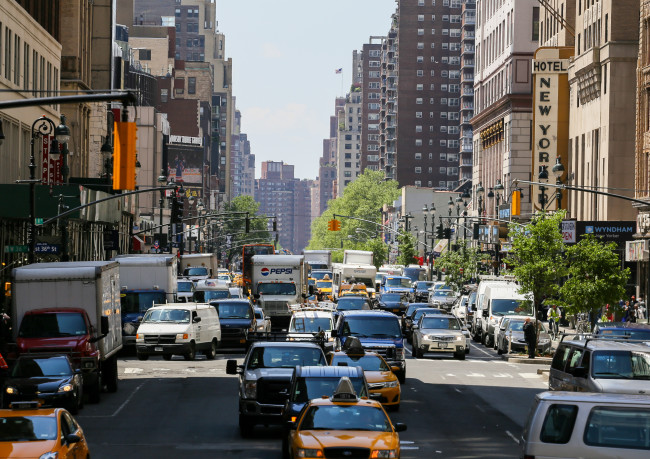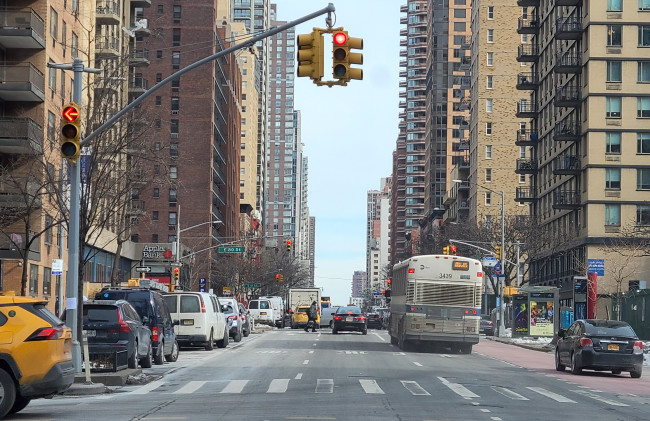Hochul halts congestion pricing plan ‘indefinitely’ in last minute flip-flop
- Hochul instructed the MTA to “indefinitely pause” the city’s congestion pricing plan on Wednesday
- Board members of two Manhattan buildings located south of 60th Street called the move a relief

Hochul canned congestion pricing, shocking elected officials and the Council of New York Cooperatives & Condominiums alike.
iStock
Governor Kathy Hochul told the MTA to “indefinitely pause” the city’s congestion pricing plan on Wednesday, weeks before it was supposed to go into effect. The last-minute move has left environmental advocates, elected officials, and business leaders flabbergasted.
The congestion pricing plan, first approved by the legislature in 2019, would have charged drivers $15 to enter Manhattan south of 60th Street during the day starting June 30th, generating $1 billion per year to fund improvements to the city’s subway system.
But Hochul said in a video Wednesday that she shelved the plan because of concerns it would hamper New York City’s recovery from the triple threat of the Covid-19 pandemic, high inflation and vacancies at Manhattan’s office buildings. (Politico reported that the decision was also driven by fears of losing suburban, Democratic voters across the state.)
Hochul said she’ll use state money to support the MTA and pursue “other funding sources.”
“I have come to the difficult decision that implementing the planned congestion pricing system risks too many unintended consequences for New Yorkers at this time,” Hochul said in her address. “We remain fully committed to advancing all the improvements that New Yorkers have been promised.”
A controversial about face
Advocates, elected officials, and business leaders were shocked at the move.
The broker and landlord group the Real Estate Board of New York, the business organization the Partnership for New York City, and the Citizens Budget Commission all criticized Hochul’s decision, The City reported.
So did Congress member Jerry Nadler, who said he was “disappointed” by the delay, and added that congestion pricing was necessary to improve the city’s air quality and raise “desperately needed capital funds” for the city’s public transit system.
State Senator Liz Krueger also criticized Hochul’s decision to cancel congestion pricing, while House Minority Leader Hakeem Jeffries said he supported a temporary pause, Gothamist and CNN reported.
Condo and co-op board members react
The move was particularly sudden for the condo and co-op boards running buildings located in the toll zone, who had already started to prepare for the impact of congestion pricing, said Rebecca Poole, the director of membership and communication for the Council of New York Cooperatives & Condominiums (CNYC).
While it’s certainly a relief for residents of co-op and condo buildings located south of 60th Street, Poole said it will leave many boards “wondering how, and if, they can prudently plan for future capital work that requires long-term predictability, a willingness for open discourse, and well thought-out solutions on the part of our government.”
“We are troubled by the sudden nature of change, which came in place of opening discussions with and providing consideration for those New York City cooperative and condominium homeowners that would have been impacted,” Poole said. “Right or wrong, the MTA was banking on the fees from congestion pricing to embark on much needed capital improvement to our strained transit system.”
A welcome change to two board members
Two members of co-op boards in buildings located within the toll zone, Corinne Arnold and Will Kwan, previously circulated a petition, shared by CNYC, asking for a six-month delay to the plan. It raised concerns that congestion pricing would hamper revenues at retailers and parking garages within the zone.
Both Kwan and Arnold were glad the governor had paused congestion pricing. Kwan said he didn’t feel the potential economic impacts on the city had been explored. (The duo wrote an article on the topic for Brick Underground, FYI).
“We are already living through a high inflationary period, and this would have further hurt those who cannot afford it,” Arnold said in an email. “Suspending the implementation indefinitely was the right decision. … That said, I am a strong supporter of public transportation and look forward to alternate routes of raising funds to support the MTA's infrastructure and reliability.”































